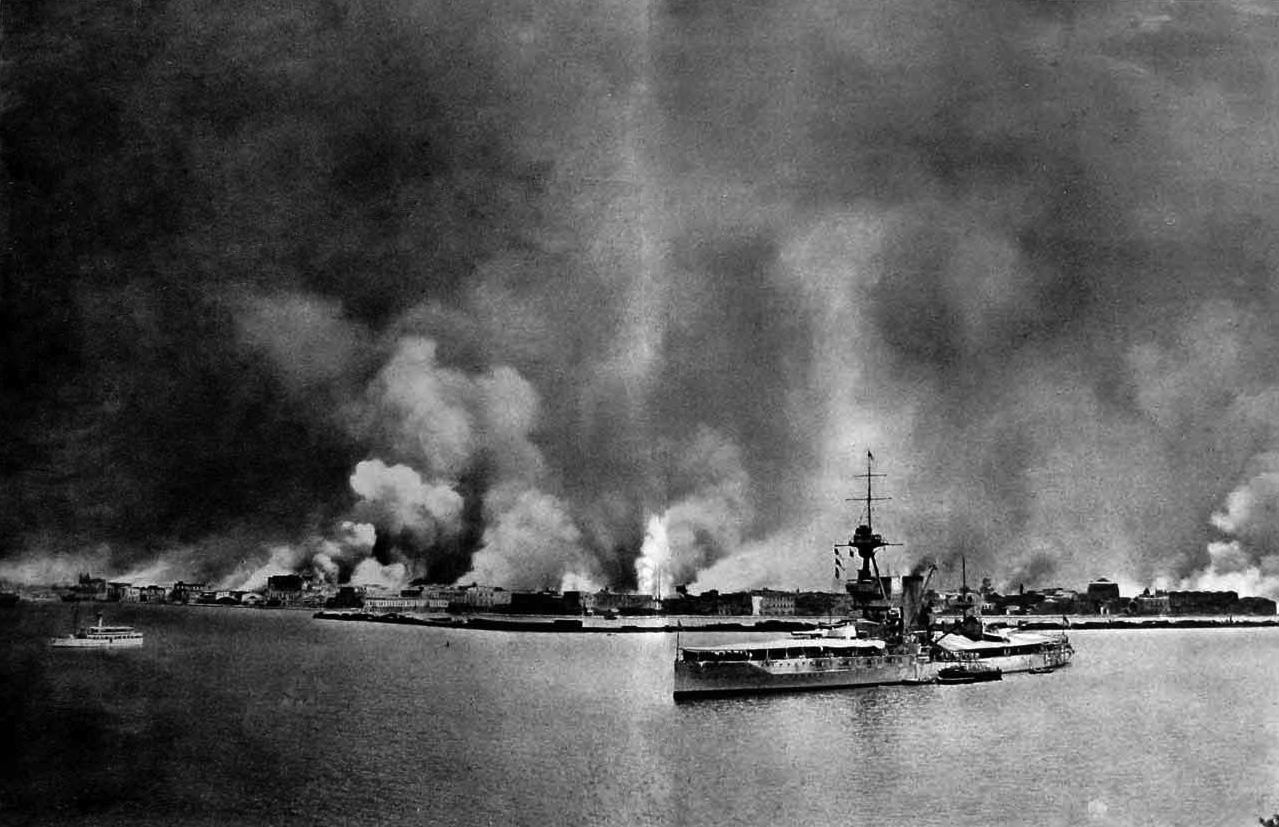
An important port city on the west coast of Asia Minor, and one of the cities to receive a scroll from Christ recorded in the book of Revelation. It was also the site of a tragic genocide by the Turkish government when the city was razed in 1922 and its Christian majority population forced to flee for their lives, the victims of international polical intrigues and betrayal.
Originally a Greek colony, the city grew wealthy from the hard work of the hordes of Greek colonists attracted to it by its natural beauty and fertile hills and superb harbour. It grew into an important trade city, its reputation carefully and shrewdly nurtured by its leaders. In the war between the Romans and King Mithridates of Pergamum, the city sided with Rome and won the gratitude of Rome—and all the favours that went with it—even though it did not have what it took to challenge the importance of Ephesus or Pergamum.
Smyrna is mentioned in the NT only in the book of Revelation (2:8-11), receiving a letter from "him who is the First and the Last, who died and came to life again," saying:
I know your afflictions and your poverty—yet you are rich! I know the slander of those who say they are Jews and are not, but are a synagogue of Satan. Do not be afraid of what you are about to suffer. I tell you, the devil will put some of you in prison to test you, and you will suffer persecution for ten days. Be faithful, even to the point of death, and I will give you the crown of life. He who has an ear, let him hear what the Spirit says to the churches. He who overcomes will not be hurt at all by the second death.
Smyrna received an honoured place in Christian tradition when Polycarp was martyred—burned alive—for refusing to renounce his faith, c.167/8, in the reign of Emperor Marcus Aurelius.
The city survived into modern times as a largely Christian city until 1922 when the city suffered a most horrendous tragedy. In the war between Greece and newly declared Turkey, Mustapha Kemal obtained a mandate from the Turkish National Assembly as a dictator for three months. Mobilizing all the resources he could find, he managed to push the Greek initiative into retreat. Predicting a bloodbath the Archbishop of Smyrna wrote to the Greek PM, appealing for the Christians to be rescued. The Turks descended on the city and set fire to the Greek and Armenian quarters; the ensuing inferno destroyed nearly three-quarters of the great metropolis. Ernest Hemingway, a war correspondent for the Toronto Star reported a 30km long procession of Greek and Armenian refugees, destitute and waiting to be rescued. Allied ships at first refused to help. French ships refused to pick up anyone who could not identify themselves as French in French. British and US ships waited for two days before they recanted. A million and a half were finally repatriated. The Archibishop was not one of them; the local Turkish commander turned him over to the Muslim mop who took him to a barber shop where he was mutilated before being killed. Historians since then have traced a path of cause-and-effect back—not for the first time—to the US, in the shift in policy when Woodrow Wilson was replaced as president by Warren Harding.


Further Reading & Resources:
☰ Constantine G. Hatzidimitriou, “The Genocide of Anatolian Christians and the Destruction of Smyrna: Scholarship and the Evidence, Ninety Years Later,” AMPHRC, Sept 15, 2012.
☰ Pathe Gazette youtube 11.40.
☰ An Interview with Giles Milton, 3 Oct 2008. Asbarez. html

©ALBERITH
261116lch